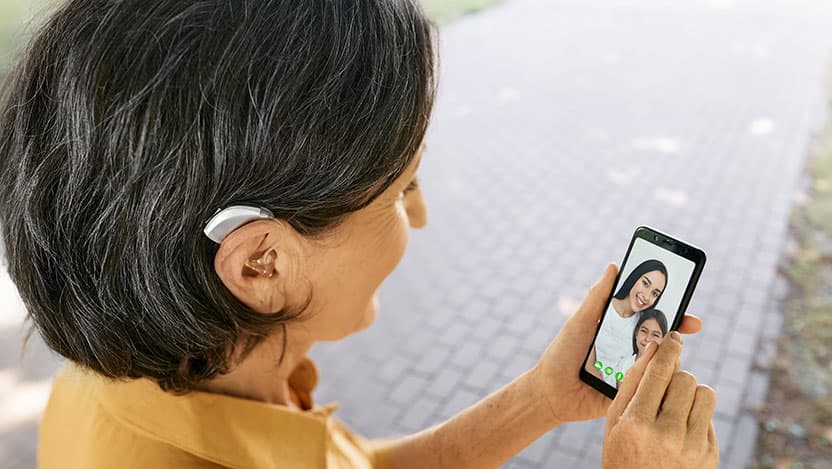Is an over-the-counter hearing aid or a cochlear implant right for you?

Though hearing aids could benefit 28.8 million adults in the United States, many people continue to struggle daily to hear the conversations and sounds around them. New regulations that allow for over-the-counter (OTC) hearing aids and make more Medicare patients eligible for cochlear implants should make it easier to get help for a hearing problem.
What are OTC hearing aids?
These hearing aids can be purchased directly in stores like pharmacies or online, without a prescription and without seeing a hearing health professional like an audiologist. Traditionally, you had to get a referral for an audiologist to have an audiologic exam and be fitted for hearing aids.
Now, you can purchase these devices and fit them yourself. These hearing aids are for people with mild to moderate hearing loss. An example would be a person having a harder time hearing in a noisy restaurant or at a family gathering. OTC hearing aids run from $200 to upwards of $1,000 (prescription hearing aids cost between $1,600 to $6,000), and insurance plans likely don’t cover them at this time.
Why it important that patients have access to OTC hearing aids?
In a way, these are the equivalent to cheaper eyeglasses. Anything that increases access to hearing health care is always good. Hopefully this will enable patients to look into and monitor their hearing closely instead of putting it off.
If you’ve decided to get OTC hearing aids, is there value in still seeing an audiologist?
By the time people notice they're having difficulty hearing, they often need to be evaluated for hearing loss that is greater than mild to moderate. It’s also beneficial to have somebody check your ears to make sure you don't have wax build-up, dry skin or an infection before you stick a device in there for several hours a day. Hearing tests are typically covered by insurance with a referral from your physician.
What should I consider when buying an OTC hearing aid?
Look for hearing aids with an OTC label on their packaging – that means they’re FDA-approved. Hearing aids that go behind the ear are going to be a better bet than those that fit in the ear. If you have small, curvy or narrow ear canals, behind-the-ear devices fit more easily. (If your ears hurt after wearing Air Pods, you may have small ear canals.)
Why is it now easier for older adults to get cochlear implants?
In September 2022, the Centers for Medicare & Medicaid Services (CMS) made Medicare patients with moderate to profound hearing loss in both ears eligible for cochlear implants. This came after the agency's 2019 decision to approve cochlear implants for single-sided deafness. It’s all part of an overall shift in our approach to candidates for these surgically implanted devices.
Once, only people who were essentially deaf and couldn't wear a hearing aid received implants. Now, we're finding that patients who get cochlear implants before their hearing falls (to the 10% to 20% range of clarity) do better because their brain still remembers sounds, which helps them develop speech clarity faster. Now, we recommend patients with 60% clarity discuss with their audiologist or ENT physician about whether a cochlear implant is right for them.
Why is it so important to treat hearing loss?
Studies have shown that a small degree of hearing loss can affect your attention and cognition. People with hearing loss tend to remove themselves from difficult listening situations, when it’s a struggle to actively listen, versus someone who can passively listen. If you're in a really difficult listening environment, you may say "Forget it" after a while or end up feeling exhausted at the end of the night.
By treating hearing loss, studies suggest improved quality of life, less isolation and loneliness and a correlation to delaying dementia.
Hearing aids also likely lower the risk of falls and reduce the impact of anxiety and depression.

Jacqueline Kenny Hudson, AuD, MS
Jacqueline Kenny Hudson, AuD, MS, is an American Board of Audiology-certified audiologist with special interests in diagnosing hearing and balance disorders in adults. She specializes in hearing aids, implantable devices and vestibular assessments.
View Dr. Hudson's Profile